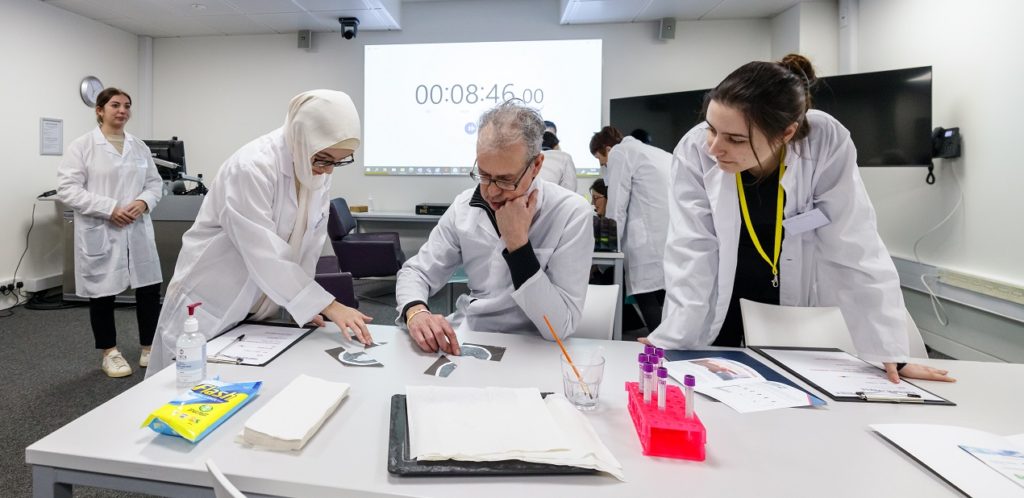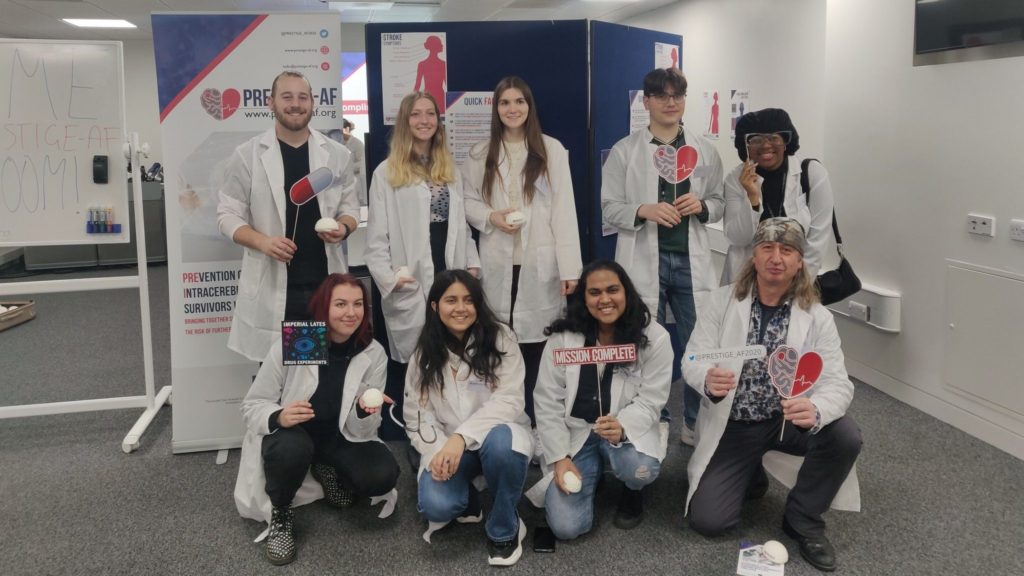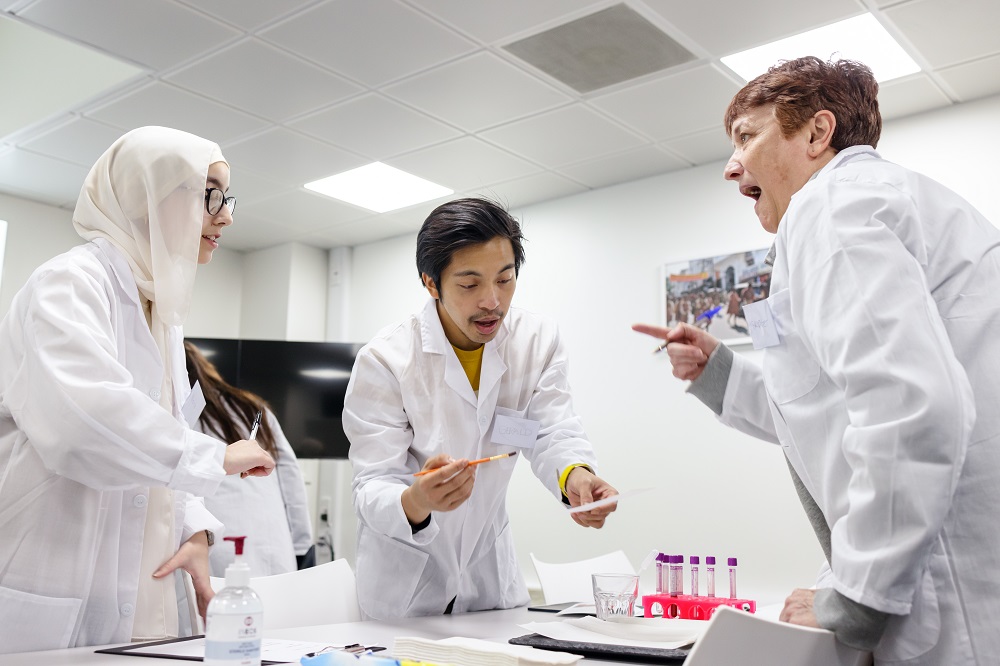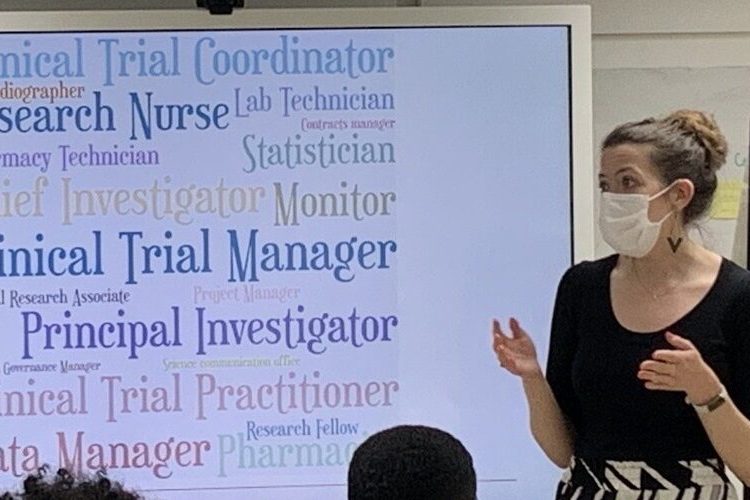On Thursday 9 February, Imperial College London hosted a new edition of its Lates programme – evening events aimed at young adults to learn about science and meet researchers.
The theme of this event was ‘Drug Experiments’, where visitors could take a trip through the science of marvellous medicines, notorious narcotics, and everyday cravings – and PRESTIGE-AF took the opportunity to engage the crowds with drug trials with our custom, pop-up escape room.
Escape the clinic
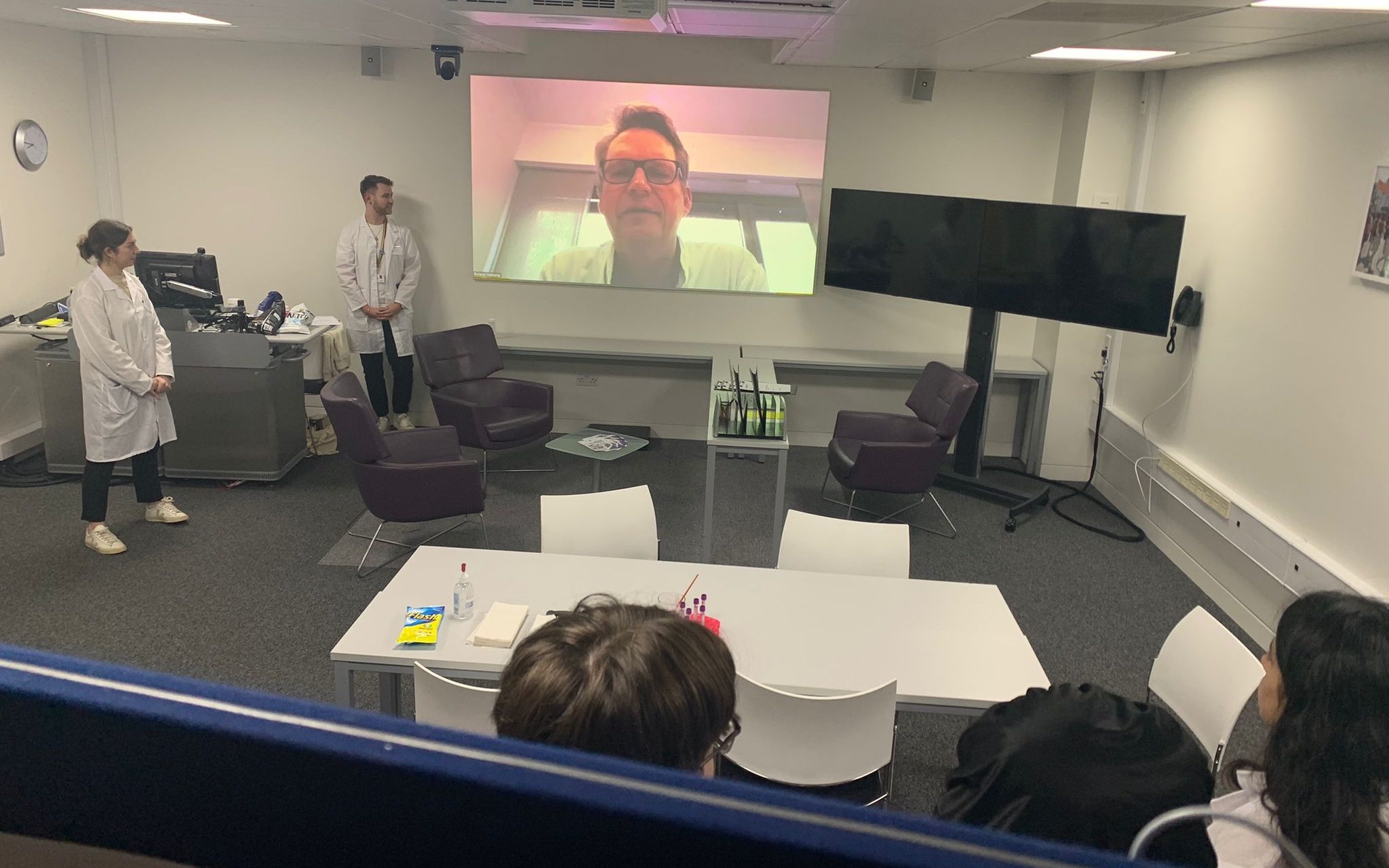
Over the course of the evening, six groups of visitors took the plunge to ‘escape the clinic’. Each group were put in the position of clinicians given a very special task: Professor Roland Veltkamp had to rush off due to an emergency, but he needs to enrol a patient into the PRESTIGE-AF trial within the next 30 minutes!
Together, teams had to tackle various puzzles – from a brain MRI scan jigsaw, to a cypher based on a research paper, to performing a blood spot that magically made the code to a locked case appear – in order to find out the information required to enrol their patient.
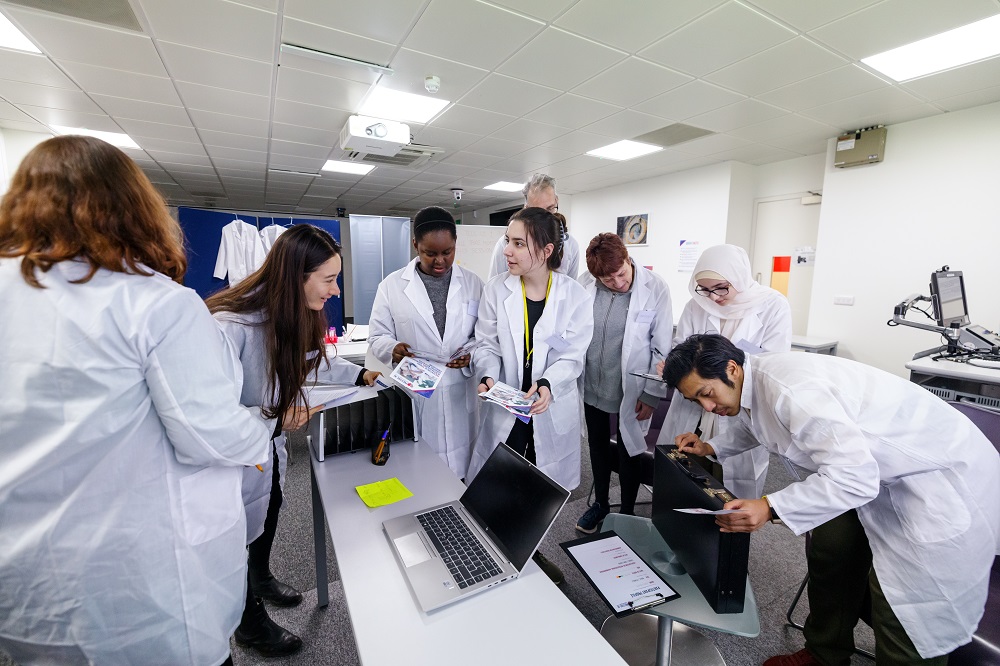
Hard work and determination meant all teams managed to enrol their patient and escape the clinic – all whilst learning about atrial fibrillation and intracerebral haemorrhage along the way!
